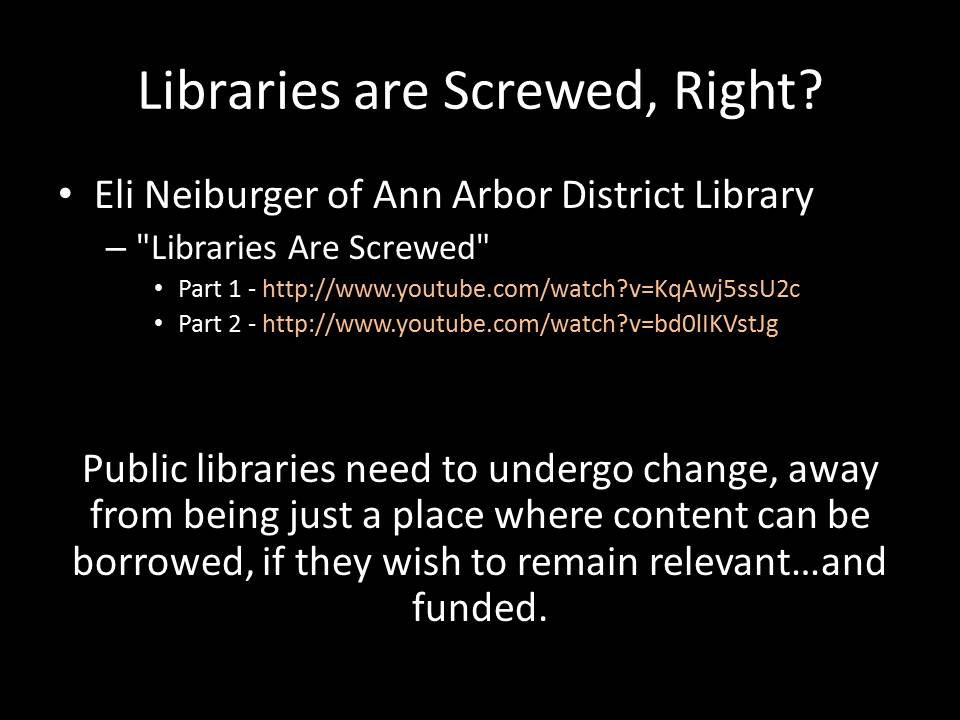Eli's Talk

This should not be a new idea in public libraries. Eli Neiburger (@ulotrichous), a librarian (and many other things) at the Ann Arbor District Library, gave a talk in 2010 at a Library Journal / School Library Journal summit called Libraries At The Tipping Point called "Libraries Are Screwed". Both parts are available on YouTube - Part I talks about the large and looming threats that public libraries face in the new digital world, and ">Part II is about the ways in which public libraries can (have to) reinvent themselves to stay present and relevant to the new reality.
Public libraries have arrived at the point where people expect us to be as seamless as the other places and services they are used to. Unfortunately, in the digital realm, publishers and content providers tend to think of us as pirates, lending and sharing things that aren't really ours to people who haven't paid for them, rather than as valuable community partners. So they introduce "friction" into our processes to make it much more appealing for someone to buy a license for content with one click than to get it for free with libraries, which often involves two sign-ups, a login, and five more clicks. And that's assuming they let us into the market at all. Content providers and distributors have found ways to freeze libraries out of the process without having to contend with the rules that say "once you've bought something, you can do with it whatever you want to" by saying that public libraries are only licensing the content, instead of buying it, and so the public library has no real ownership or rights to do what they want with that content.
Public libraries cannot continue to exist merely as a repository for information and as a system for content delivery. There are far too many other entities and companies that can do that, and can do it better and faster than libraries can. Sure, you can't beat our price, but most people are willing to go with "I can get this quickly" over "I can get this for free". Commercial entities have a vastly more expansive collection of things to offer than our limited library budgets can dream of. We can't scale to that kind of degree to keep everybody happy.